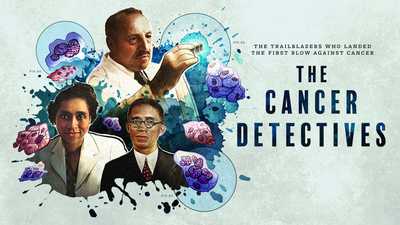John Scopes

John Thomas Scopes came to Tennessee fresh out of college. In the spring of 1925, he had just completed his first year as science teacher and part-time football coach at the high school in the little town of Dayton. Scopes planned to return home to Kentucky for the summer. But in his words, "a beautiful blonde" distracted him and he stayed for another week hoping for a date. The decision changed his life forever.
It all began when the state of Tennessee passed a law making it a crime to teach evolution in public schools. A new organization called the American Civil Liberties Union responded immediately. The ACLU placed an ad inviting a teacher to help test the law in the courts. Dayton was in an economic slump, and the town's movers and shakers thought a sensational trial would put Dayton "on the map."
John Scopes was playing tennis when a group of businessmen called him to the town gathering place, Robinson's drugstore. They asked if he would be willing to be indicted for teaching evolution. Though he couldn't remember actually teaching Darwin's theory, Scopes believed in evolution and agreed to the plan.
The trial quickly became a media circus. John Scopes was to have Clarence Darrow, America's top criminal lawyer, defend him. The famous politician and anti-evolutionist, William Jennings Bryan, volunteered to assist the prosecution. Reporters from all over the country flocked to Dayton, including an announcer from Chicago's WGN radio. It would be the first live broadcast of a trial in American history.
The trial began on July 10, 1925. "The town was filled with men and women who considered the case a duel to the death," John Scopes later wrote. "Everything I did was likely to be noted."
But over the next two weeks nobody paid much attention to the defendant. Attorneys for both sides hogged the spotlight in the overheated courtroom. In the words of historian Kevin Tierney, "Scopes was being used. He was completely willing to be used. But essentially the case had been taken over by the big names."
On the most sensational day of the trial, when Clarence Darrow interrogated William Jennings Bryan as an expert on the Bible, Scopes actually became a reporter for his own trial — filling in for a journalist who had left town!
The trial ended in a conviction. The judge imposed a fine of $100 and John Scopes spoke for the first time. "Your honor," he said, "I feel that I have been convicted of violating an unjust statute. I will continue in the future, as I have in the past, to oppose this law in any way I can."
For Scopes, the trial had been an ordeal. When it was all over, he gave up teaching and left town. He accepted a scholarship to the University of Chicago, received a master's degree in geology and took a job as a petroleum engineer in Venezuela — where no one had ever heard of him.
In 1960 the defendant returned to the scene of his "crime" when the movie version of the trial, Stanley Kramer's Inherit the Wind, premiered at a Dayton drive-in. Scopes saw himself on the big screen as Bertram Cates, defender of science and victim of intolerance. In the film he is jailed for his beliefs.
In 1967 John Scopes summed up his life in his lively autobiography, Center of the Storm. "A man's fate, shaped by heredity and environment and an occasional accident," he wrote, "is often stranger than anything the imagination may produce."





